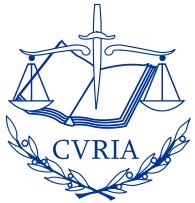Paris, November 24th, 2011 — The European Court of Justice just rendered a historic decision in the Scarlet Extended case, which is crucial for the future of rights and freedoms on the Internet. The Court ruled that forcing Internet service providers to monitor and censor their users’ communications violated EU law, and in particular the right to freedom of communication. At a time of all-out offensive in the war against culture sharing online, this decision suggests that censorship measures requested by the entertainment industry are disproportionate means to enforce an outdated copyright regime. Policy-makers across Europe must take this decision into account by refusing new repressive schemes, such as the Anti-Counterfeiting Trade Agreement (ACTA), and engage in a much needed reform of copyright.
 Context: In this very important case, Belgian collecting society SABAM had asked Belgian Courts in 2004 to mandate broad censorship mechanisms to block all unauthorised transmissions of copyrighted works by ISP Scarlet’s subscribers1http://www.timelex.eu/en/blog/p/detail/the-sabam-vs-scarlet-case-will-be-continued-before-the-european-court-of-justice. The Belgian judge devolved the matter to the European Court of Justice (ECJ), asking EU judges the following question: “Does EU law allow a national judge to give an injunction for an ISP to filter preventatively all the electronic communications passing through its network?”
Context: In this very important case, Belgian collecting society SABAM had asked Belgian Courts in 2004 to mandate broad censorship mechanisms to block all unauthorised transmissions of copyrighted works by ISP Scarlet’s subscribers1http://www.timelex.eu/en/blog/p/detail/the-sabam-vs-scarlet-case-will-be-continued-before-the-european-court-of-justice. The Belgian judge devolved the matter to the European Court of Justice (ECJ), asking EU judges the following question: “Does EU law allow a national judge to give an injunction for an ISP to filter preventatively all the electronic communications passing through its network?”
Analysis: In its final ruling2http://curia.europa.eu/jurisp/cgi-bin/form.pl?lang=EN&Submit=Submit&numaff=C-70/10, the ECJ agrees to the advocate general’s conclusions and stresses that such filtering measures have drastic consequences on freedom of expression and privacy. EU judges also stress that these measures disrespect the eCommerce directive’s prohibition of any obligation imposed on ISPs to engage in general monitoring of their users communications.
Consequence: The ECJ ruling will have crucial consequence on Internet related law in all of the EU, especially now that the EU Parliament is starting to work on its consent vote on ACTA and as the Commission is working on the Copyright Enforcement Directive (IPRED).
“As the war on culture sharing is fiercer than ever, this ECJ ruling comes at a timely moment. After the Promusicae ruling3http://jolt.law.harvard.edu/digest/copyright/promusicae-v-telefonica, it is a blow for the European Commission, which has implicitly supported the broad filtering schemes that the entertainment industries are pushing for4See our analysis of the Commission’s working document on the revision of IPRED: http://www.laquadrature.net/en/lqdns-response-to-the-ipred-consultation
According to the Commission, “injunctions often tend to be ‘title specific’. Rights-holders therefore have to provide a full list of titles when asking for an injunction and the injunction will normally relate only to the indicated titles, while infringements with a view to titles not contained in the list can continue.” Thus, the Commission is proposing to generalize the wide censorship scheme ordered by the first instance judge in the SABAM case by eroding the liability exemptions enjoyed by technical intermediary.. The ruling stresses once again that instead of keeping on pushing for more repression EU policy maker should work towards a much needed reform of copyright that would protect citizens’ freedoms. Rejecting ACTA and other extremist measures imposed in the name of copyright would be a first step.”, said Jérémie Zimmermann, co-founder and spokesperson of citizen advocacy group La Quadrature du Net.
Beyond copyright, this decision also underlines the dangers of Net filtering and calls for an important democratic debate regarding their disproportionate nature.
“After the report of the UN Special Rapporteur for freedom of expression pointing out the dangers of Net censorship, this ruling is another wake-up call. The relentless extension of filtering to new fields must be stopped, and lawmakers across Europe must commit to repealing any law enforcement measure that disrespects fundamental rights.”, concluded Jérémie Zimmermann.
References
| ↑1 | http://www.timelex.eu/en/blog/p/detail/the-sabam-vs-scarlet-case-will-be-continued-before-the-european-court-of-justice |
|---|---|
| ↑2 | http://curia.europa.eu/jurisp/cgi-bin/form.pl?lang=EN&Submit=Submit&numaff=C-70/10 |
| ↑3 | http://jolt.law.harvard.edu/digest/copyright/promusicae-v-telefonica |
| ↑4 | See our analysis of the Commission’s working document on the revision of IPRED: http://www.laquadrature.net/en/lqdns-response-to-the-ipred-consultation According to the Commission, “injunctions often tend to be ‘title specific’. Rights-holders therefore have to provide a full list of titles when asking for an injunction and the injunction will normally relate only to the indicated titles, while infringements with a view to titles not contained in the list can continue.” Thus, the Commission is proposing to generalize the wide censorship scheme ordered by the first instance judge in the SABAM case by eroding the liability exemptions enjoyed by technical intermediary. |

